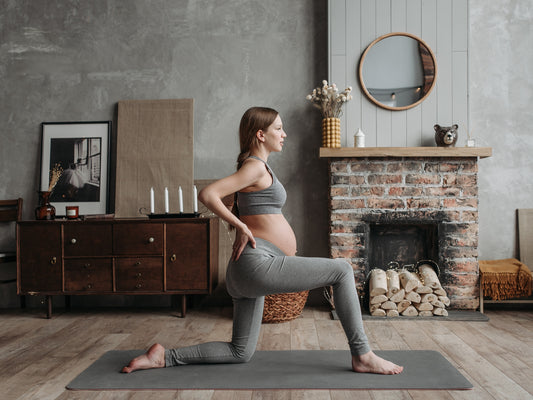Daily Fatigue
We all know what it’s like to wake up feeling tired and in need of a PJ-day. But what if you’re feeling fatigued, drowsy, and unable to concentrate every day? We dove into the research and found 4 ‘not enough’ and 3 ‘too much’ factors that might be dragging you down. Here are some fatigue causes:
Not enough…
...sleep

It might be obvious, but sleep decreases tiredness. We can get by on less sleep that the recommended 7-9 hours a night, but limiting our sleep doesn’t allow us to function at our best, and leaves us feeling tired all the time [1]. This constant fatigue during the day has an effect on how you feel and your productivity. Studies show that catching up on sleep over the weekend with one long hibernation in isn’t very effective, so to combat tiredness, a regular sleep routine is best [2].
...water
Staying hydrated is a great way to combat daily fatigue and tiredness. All our body functions, and brain function in particular, rely on water to perform at their best. Feeling tired is one of the key symptoms of dehydration; a yawn may be your body’s way of telling you that it’s time to drink up! (Hydrant can be a great way to make sure you are hydrating properly, and here’s why.)
...exercise
“But surely exercise drains your energy? Won’t working out more make me feel more tired?” Well, there are two reasons why lack of exercise might be getting you down. The first is that exercise gives us an energy boost. It gets your body alert and awake, improving focus and adrenaline [3]. Exercise can also improve the quality and duration of your sleep. By properly tiring out your body and mind, you sleep better, and so have more energy the next day. Just be careful to not exercise too close to bedtime, else that energy boost from your workout will stop you from sleeping! [4]
...fruits and veggies

Nutritionists say that a healthy, balanced diet, is often the key to making us feel more energized. The healthiest balance includes starch, protein, dairy, and, of course, fruits and vegetables [5]. A 2015 report found that only 1 in 10 Americans were eating enough fruits and veggies [6]. Your mom was right, eat your broccoli!
Too much…
….caffeine

Although we use caffeine to make ourselves feel more awake, too much caffeine actually contributes to sleepiness [5]. Caffeine keeps us alert so we don’t rest or sleep properly, and causes a dependence that, overtime, heightens our tolerance. With daily consumption, we need more caffeine to give us the same energy boost, leaving us feeling more tired in between hits [7].
...screen time
Our bodies set their sleep-wake rhythm (known as a circadian rhythm) by the hours of light and dark. Screen time increases our exposure to bright light, suppressing melatonin in your body, a hormone that helps set the circadian rhythms. This means we lose sleep and become more tired. We also have our brains over-stimulated by constant technology, which adds to drowsiness [8].
…time indoors

Vitamin D is an essential chemical for proper body function. Studies have shown that raising vitamin D levels in people with daily fatigue has a significant impact on energy levels [9]. The best way to get vitamin D is to allow your body to make it, after prolonged sun exposure. If you spend most of your day indoors, you might find the sun is a solution to your tiredness [10].
Remember!
Fatigue can be a common symptom of many medical conditions. If your fatigue is persistent and not relieved by a healthy lifestyle like that described above, consult your doctor.
Writer: Ailsa McKinlay
Editor: Elizabeth Trelstad, www.hellobeaker.com















